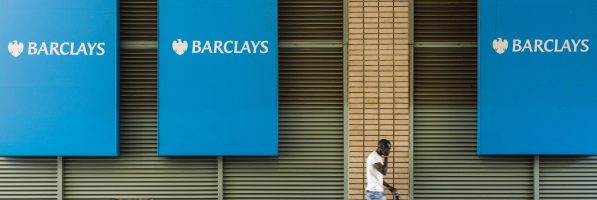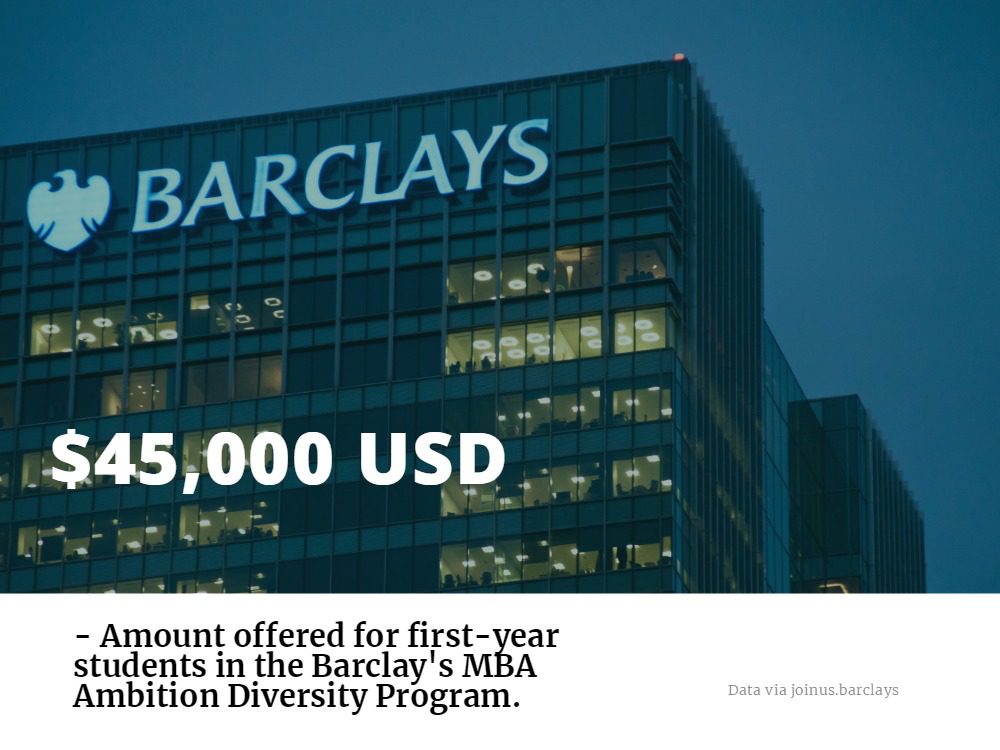MBA in the UK: Is London or Manchester Right For You?

With close to 9 million residents, London has the fifth-largest metropolitan economy in the world and is responsible for producing 22 percent of total GDP in the United Kingdom.
Continue reading…What They’re Saying: Business Schools Talk About Cambridge Analytica

Less than a week after Christopher Wylie, the whistle-blower in the ongoing Cambridge Analytica controversy, helped reveal the “dirty tricks” the data mining firm used to help swing elections in North America, Europe, and Africa—including the 2016 U.S. general election—business schools are reacting to the dynamic story.
In short, UK television outlet Channel 4 News filmed several Cambridge Analytica members in an undercover operation, in which they revealed numerous strategies, including: soliciting fake bribes, hiring prostitutes to seduce potential candidates in elections, and more. Company chief executive Alexander Nix was also filmed in the video, which you can watch here, boasted the company’s outreach methods on social media, saying: “It sounds a dreadful thing to say, but these are things that don’t necessarily need to be true as long as they’re believed.”
Another member of the Cambridge Analytica team also argued that they constructed President Donald Trump’s popular “crooked Hillary” campaign slogan from 2016.
Further, the controversy revealed how the company pilfered upwards of “50 million” Facebook profiles, most of which came without consent. Facebook and its founder Mark Zuckerberg played silent on the ongoing story up until March 21, plainly saying in a CNN interview “I’m really sorry that this happened.”
“Aleksandr Kogan, the data scientist who passed along data to SCL Group and its affiliate Cambridge Analytica, built a Facebook app that drew data from users and their friends in 2013. He was allowed access to a broad range of data at the time.
Though Kogan’s data was properly obtained, he breached Facebook’s policy when he shared that information with a third party, Facebook has said. When Facebook learned about the information being shared, it asked Cambridge Analytica to destroy the data. Cambridge said it had.”
Wylie notes that Cambridge Analytica probably never destroyed that data, inevitably leading towards the company’s involvement in the 2016 election. Several of the nation’s most prominent business schools talked about the story on Twitter, which you can read below.
André Spicer, Professor of Organisational Behaviour, on Cambridge Analytica and the possibility of tech companies being forced to expand regulations on privacy and social responsibility.
Read André’s comments: https://t.co/O5IAlUTD5t#cambridgeanalytica#cassbusinessschoolpic.twitter.com/GWv95RUIMc
— Cass Business School (@cassbusiness) March 21, 2018
“The really big issue is if regulators start questioning the business model of tech firms. Currently, consumers give away their data in exchange for free services, but what if regulators start putting a price on people’s data?” –
Cass Business Professor André Spicer
Q&A with @cyberlawclinic‘s @vivekdotca about Facebook and Cambridge Analytica, U.S. privacy protections, and the regulation of the tech industry https://t.co/LPKwwSKSXw
— Harvard University (@Harvard) March 22, 2018
The head of the European Parliament announced on Monday that the EU will investigate whether the data of more than 50 million Facebook users were misused when it was accessed by Cambridge Analytica! https://t.co/q946Hed417
— FOX MBA & MS (@FoxMBA) March 22, 2018
Cambridge Analytica said it’s suspending its CEO immediately and is launching an independent investigation into allegations it misused data on millions of Facebook users. https://t.co/EKeXiuHeQF
— MIT Tech Review (@techreview) March 21, 2018
Finding Your Dream MBA Career at Barclays

For over 300 years, Barclays has been one of the leading international banks for both consumer corporate investments. MBA candidates are drawn to Barclays not only for its stature in the global finance industry but also for the vast array of professional opportunities it offers. Within business banking, corporate banking, customer banking solutions, marketing, investment banking, and technology career paths, Barclays’ training, mentorship, networking, and travel opportunities are often unparalleled in the financial industry.
Barclays’ MBA Recruitment Program
At Barclays, one major key to continued growth and success consists of building strong interdisciplinary business networks. As part of Barclays’ ongoing development opportunities, the company maintains a robust campus recruiting system. Barclays makes a point to develop relationships with their future prospects as early as possible in their educational and professional careers.
For students pursuing an MBA, Barclays offers the MBA Ambition Diversity Program, a summer internship program dedicated to talented and motivated MBA candidates. Within the MBA Ambition Diversity Program, Barclays initially gives a candidate a “condensed version of our on-campus recruiting process during the summer before you start your MBA, culminating in interviews at our New York office.” Successful candidates will then be offered an internship position the following summer after the first year of business school is completed. Once a candidate has been accepted, Barclays offers a fellowship program that “provides $45,000 toward first-year tuition and academic expenses.”
Barclays prides itself in seeking out women, men, and non-binary individuals of all backgrounds to cultivate a diverse environment for employees to learn from one another. The idea is that this multifaceted workspace will help employees expand their cultural perspective as they embark on a career in global finance.

As of October 2017, Barclays has begun to offer free accommodation for graduates taking job interviews in London, Birmingham, and Manchester. This is for all graduates—not only Barclays applicants.
The Barclays Career
In 2016, Barclays’ head of banking associate recruitment, Kristi Robson, explained in an interview that MBAs are commonly hired into their banking division where Barclays has its largest intake. Banking interns and employees generally move into a product or coverage role within Equity Capital Markets or Technology, Media & Telecommunication, for example. Robson explains, “We do hire a small number of MBAs into our research business but this is dependent on business need.”
According to the 2017 WSO Investment Banking Industry Report, first-year analysts earn between $70,000 and $150,000 USD based on experience and by year three average between $120,000 and $350,000. “At the analyst level, it is not uncommon to work between 80 to 120-hour weeks at some firms. Most analysts start in the summer and receive their first investment banking analyst bonus around June or July, approximately one year after the analyst starts working. Analysts also often receive a signing bonus from $5,000 to $20,000, as well as a moving bonus if they are transferring laterally to a different bank.” For these reasons and more, Barclays strives to provide their candidates with every opportunity to grow professionally.
Education Opportunities
The following London MBA programs are reputable feeders for roles at Barclays. They are all remarkable schools for distinct reasons but each provides a formidable mix of business education and valuable alumni networks:
- Ashridge Executive Education
- Cass Business School – City University London
- Cranfield School of Management
- Henley Business School – University of Reading
- Imperial College Business School – Imperial College London
- Judge Business School – University of Cambridge
- London Business School
- Saïd Business School – University of Oxford
If you’re driven and wish to work for a large organization that still believes in “small-business”-style relationships and offers unique opportunities to develop business skill-sets and global perspectives, then Barclays could be the perfect fit.
The Highest Paid MBA Starting Salaries in London

The draws of London may be too numerous to list: from a booming global economy to robust historic and cultural attractions, the city has a little something for everyone.
It’s likely no surprise that the city would take the sixth spot in The Atlantic‘s list of the “World’s Best Cities for Business, Life and Innovation.” While a number of factors were taken into consideration for creating the list, London’s ranking was likely boosted by its top spot in financial/business employment, and its 2nd overall spot in attracting job-creating foreign investment.
Such attributes make London an ideal spot for those pursuing or graduating with MBA degrees. As a center for global business, the opportunities for someone with the skills of an MBA are seemingly endless. However, the same vibrancy that attracts visitors across the world to London can make it an incredibly expensive city to live in from day-to-day, and those considering a move will need to consider both the cost of the city as well as earning potential.
Thankfully, London is home to some of the top MBA programs in the world, boosting the hireability and earning potential of graduates.
The Highest Paid London MBA Salaries
Saïd Business School – University of Oxford
Students at the Saïd Business School at the world-renowned University of Oxford take their education to countries around the world and into a wide variety of industries. Even considering the uncertainty brought to businesses in UK with the ‘Brexit’ referendum, the salaries of Oxford MBA graduates continue to rise from from the previous class to 2016 graduates. The average class salary for recent MBA grads at Saïd was £69,132, or $93,404 US—an increase of almost $13,000 from the previous year. These salaries varied slightly with industry, with salary averages for fields like finance and consulting reaching $96,273 and $98,458, respectively.
London Business School
With a staggering 96 percent of MBA graduates from London Business School accepting an offer within just three months of graduation, LBS graduates don’t need to wait long to start their dream job, with hopefully a salary to match. For MBA graduates of LBS, the average salary could range between £32,000 and £151,000, with the mean coming at an impressive £77,600. Salaries varied slightly between industries and also by region, with LBS graduates staying in the UK making slightly less than those venturing to North America.
READ MORE: “London Business School Launches More Flexible MBA”
Judge Business School—University of Cambridge
Graduates from the University of Cambridge Judge Business School will quickly realize the benefits of having such a well-regarded degree: about 92 percent of students from the graduating class received job offers within three months of earning their degree. The Cambridge MBA data also reveals the degree’s success in aiding those as they transition to a new career—98 percent of the 2015 graduating class switched either country, function, or industry sector just two years after graduating. The typical salary of Judge graduates increased greatly for the MBA class of 2015—likely a result of fluctuations in the pound after the Brexit decision—at a current average of £99,000, or, $133,792 USD.
Cass Business School—City University London
The Cass Business School at the City University London ranks among the top three schools for career development in the UK, a ranking reflected in the data of MBA graduates from the University. About 87 percent of MBA graduates reported a 53 percent increase in their salary. The average salary for MBA graduates at Cass is $99,000, with an even greater increase for those with an Executive MBA degree, at $130,000.
Cass Publishes Report on State-Owned Post Offices

A state-owned post office may benefit the UK, according to a recent report from the Cass Business School in London.
The City University of London school’s 46-page report specifically looked at how a state-owned post office would impact the country, in an effort that would diversify the UK’s portfolio and increase its revenues, according to a press release. Economic and financial growth would be spurred by improving financial assistance to small and medium enterprises, growing inclusion in the financial sector for those not using banking services, and shifting the economy away from solely urban centers like London.
Other countries in Europe already follow a similar system, including Italy and France. Currently, the Bank of Ireland manages post office banking services. The report suggests ending the partnership by acquiring the Bank of Ireland, UK portfolio and holding onto its customers. The post office would be set up as a subsidiary, per the report. The researchers’ analysis found that “the Post Office’s current partnership with the Bank of Ireland has not delivered the expected and potential results,” according to the report.
“Our analysis suggests the revenues the partnership between the Post Office and the Bank of Ireland has brought in remain significantly lower than post banks around the world, and it has not delivered a full range of banking products for Post Office customers,” lead author Barbara Casu Lukac said in the press release.
Lukac is the Director of the Centre for Banking Research, and she teaches banking and finance at Cass. She joined the faculty in 2007 and has worked at universities throughout Europe, including the Catholic University of Milan in Italy and the University of Wales.
Dr. Angela Gallo and Dr. Francesc Rodriguez Tous co-authored the paper. Gallo is a research fellow at the business school, and Tous is a lecturer.
Cass Executive MBA Talks Israel-Palestine Elective

Core courses are essential to any MBA program. However, it’s the electives that can truly shape a program for the individual. For Harold Okwa, a Modular Executive MBA at Cass Business School City University London, one elective course that stood out was Innovation & Technology in Israel and Palestine.
In a blog post titled “When Innovation is your Only Option,” Okwa explains his choice, saying, “In my opinion, the Israel-Palestine elective was most thought provoking, and it discredited everything I ever knew about the region; Israel using its ‘obsession’ for security to secure itself from its Arab neighbor nations, to Palestine coming to terms with their current realities, both resolving their issues by use of innovation and entrepreneurship to better their future.”
One unique aspect of the elective is that the class took place on the ground in Tel-Aviv and Palestine for a week. For the first three days, Okwa and his classmates visited various companies and organizations throughout Tel-Aviv including the Peres Centre for Peace, the Bridge (Coca-Cola’s accelerator program) and 83 North (a venture capital firm).
“Another exciting part was the panel discussions, where we met a group of female entrepreneurs, angel investors, and different co-founders who were are at various stages of their start-up journey,” Okwa wrote. “These were very enlightening and educational experiences.”
Then, the class traded their Israeli tour guide for an Arab Palestinian guide and they left the West Bank border of Israel to visit Ramallah. For Okwa, it was a stark change. In Ramallah there was no 3G mobile Internet and thanks to subtle changes in roof tops and car number plates, he felt like he had “gone back in time.”
Still, the class met with numerous stakeholders in the technology and innovation ecosystem including co-working accelerator spaces, financial institutions such as the Bank of Palestine, entrepreneurs, and even politicians.
“The highlight of Palestine was visiting Rawabi city, and meeting with the man behind the vision, Bashar Masri, who didn’t hesitate to give us his thoughts on how Ramallah is doing business, his quest to bring development to the people of Palestine, and his thoughts on Israel,” Okwa said.
At the end of the trip, Okwa came back with a unique perspective. He was impressed by how both Israelis and the Palestinians used innovation and technology in an attempt to better their own lives. And, he even got some advice on how to utilize “waste” in his real estate business Vestates as well as how to improve his mobile application for his startup, Jetseta, a luxury transportation app. How a commercial luxury app helps ameliorate one of the world’s most pronounced conflicts involving an often-accused apartheid state remains to be seen, but Okwa’s optimism is strong.
“One of the main takeaways from the elective, is how optimism and innovation have acted as catalyst to the development of both Israel and Palestine (especially in the case of Rawabi city),” Okwa said. “In the words of the late President Peres ‘Optimists and Pessimists die the same way, but live differently.’”
